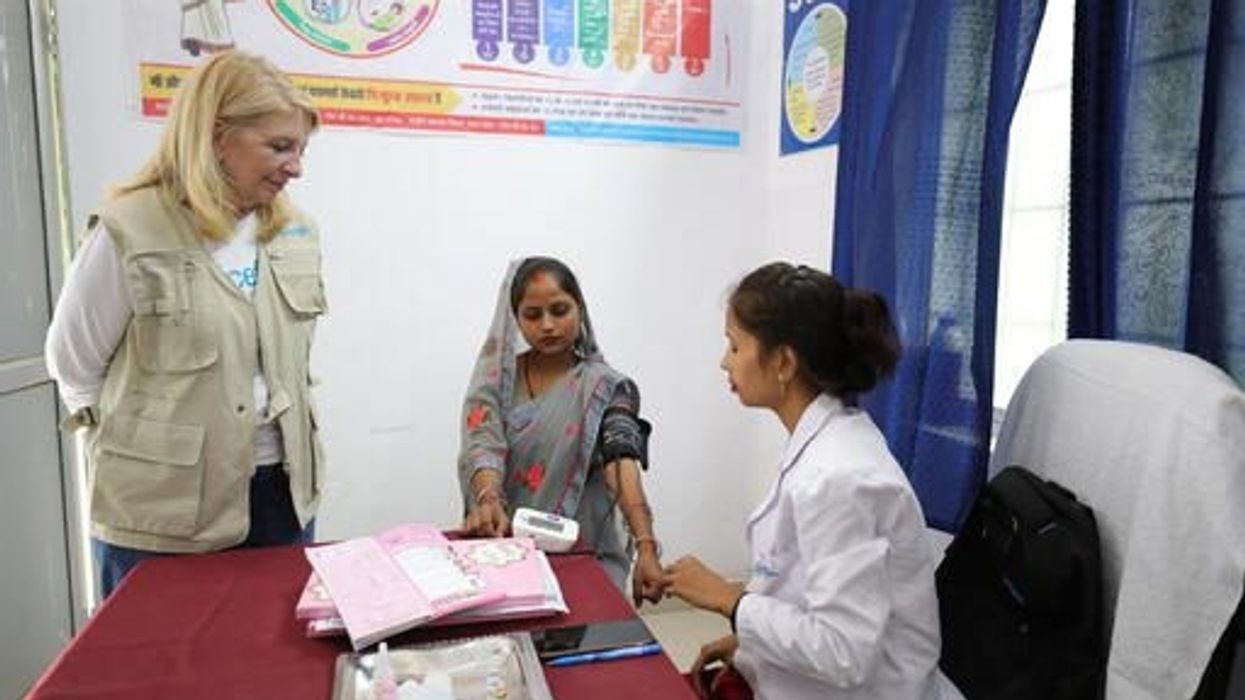UNICEF chief Catherine M. Russell has emphasised that globally, two-thirds of child-related Sustainable Development Goals (SDGs) are off-track, and India's progress is crucial in achieving these goals.
In an interview with PTI, Russell highlighted that India's large population and scale make its potential for progress particularly significant on the global stage.
"When India starts to make progress on some of these things, it can change so quickly and have such a huge impact on the rest of the world," the UNICEF executive director said.
On a question on the SDGs, she said globally they are way off-track.
"We estimate that two-thirds of the SDGs that relate to children are not where they need to be. The truth is that globally SDGs are way off-track," she said.
The SDGs are a set of 17 interconnected global objectives established by the United Nations in 2015 to address a wide range of social, economic and environmental challenges facing the world. These goals, often referred to as the Global Goals, are designed to guide global efforts toward a more sustainable, equitable and prosperous future for all by the year 2030.
Several SDGs directly impact children, such as SDG 2 (Zero Hunger), which focuses on eradicating child malnutrition and hunger, and SDG 3 (Good Health and Well-being), which aims to reduce child mortality and ensure access to quality healthcare.
Additionally, SDG 4 (Quality Education) emphasises the provision of inclusive and equitable education for all children, ensuring they have the skills and knowledge necessary for a prosperous future.
Furthermore, SDG 5 (Gender Equality) strives to eliminate gender-based discrimination and violence against girls while promoting their equal participation in all aspects of society.
India's progress on key child-related SDGs, including under-five mortality, maternal mortality and immunisation, has been noteworthy, Russell said.
"India has made some real progress on issues for sure, on under-five mortality, on maternal mortality, on immunisation... seeing real progress," she said.
"There are challenges that continue and that's the case here and around the world. But as India makes progress on those, it'll have a huge impact on the rest of the world... in terms of the overall numbers and ...because other countries in the Global South really look up to India and want to learn and see what works here in a country that has some similar challenges," she added.
On UNICEF's role in building climate resilience, the UNICEF chief said they use a three-pronged approach -- greening up their operations, educating young people about climate issues and helping communities become more resilient to climate change.
Russell underscored that climate change disproportionately affects children.
Speaking about UNICEF's projects in India, Russell said, "We have a lot going on here. We've been here for 74 years. We have a long-term commitment to the children of India and have done incredible work on water, sanitation, nutrition and other things."
During her recent visit to Uttar Pradesh, a state in north India, Russell said she witnessed the impressive work of community health workers who are deeply embedded in their communities, ensuring proper care for mothers and children.
She was on a four-day visit to India during which she met senior government leaders, children, youth and their communities.
She also travelled to Lucknow (the capital city of Uttar Pradesh) where she met women frontline health workers to witness firsthand their crucial role in providing an array of essential services to save lives in the hardest-to-reach communities across India.
(PTI)




